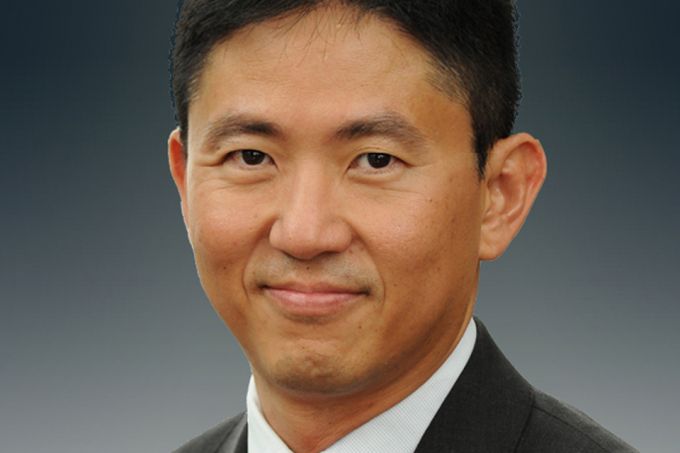![]()
High net worth families must plan adequately to ensure a smooth transfer of wealth to the next generation.

AS wealthy individuals in Asia prepare to hand over the reins to their children, more of them are seeking help to navigate the complexities of this generational transfer and ensure that their legacy remains intact.
This has become more critical in an increasingly borderless world where assets are held across multiple jurisdictions. If succession planning is not managed properly, this can not only result in a higher tax burden, but also lead to tensions brewing among family members, experts say.
For instance, not giving children a clear idea of when they will inherit wealth, or making them wait too long for it, may cause them to lose interest in contributing to the growth of the family business. This may mean losing the chance to tap on the “social capital” of family members, warns Lee Woon Shiu, head of wealth planning, Bank of Singapore.
“Your legacy is not just money but also your social and emotional capital. We encourage our clients to regard their family members as key assets. You will want to invest in your children so that they can contribute to the company and grow the family’s wealth over the long term,” says Mr Lee.
He suggests that family patriarchs start succession planning early, while they still have the authority to call the shots. Part of the process will involve building mechanisms to resolve disputes among family members
“Don’t underestimate tensions that may be brewing beneath the surface of a family. When the patriarch is around everyone is nice, but once he passes away, disagreements are far more likely to arise. Rather than hoping that disputes will not arise, it is far wiser to put in ground rules early to deal with them,” he advises.
For instance, a family head may think that splitting his business equally among his three children is an equitable way to pass on his wealth. Yet without a clear leader among the three, the business may not continue to thrive upon his passing.
A better way would be to choose one child as a successor and give him 75 per cent of the business, while also buying an insurance policy that will pay out a cash amount to his other two offspring. Business founders must also be prepared to accommodate their children’s views in running the company as they mature or risk conflict within the family.
“The children probably went to the best universities in the world and were schooled in a different way from their fathers. The way they run the business will be different. The patriarch must embrace these differences and garner strength from the diversity,” says Mr Lee.
Taxation issues are another key consideration in succession planning. Families have to be clear on what their assets are – whether real estate, shares or operating businesses – and where these assets reside. If tax planning is not done properly, children of rich parents in the US could be hit with a huge tax bill when they receive their inheritance, for instance.
“Tax issues can be complex. Working in tandem with qualified legal advisers, we help our clients to find the optimal structure that will minimise their tax burden,” explains Mr Lee.
Beyond tax, families also have to be aware of laws in different countries that can potentially affect their wealth, such as matrimonial laws in the event of a divorce. In such cases, it is important that assets are “financially ring-fenced” to protect them.
Trust structures
There are various structures and tools available to families to manage their money to ensure a smooth transfer of funds. For clients with between S$5 million and S$10 million in funds, a trust structure supplemented with a universal life insurance (ULI) policy would suffice.
ULI pays out upon the patriarch’s death and can be used to provide immediate cash payments to cover taxes or satisfy inheritances. This is important if the assets are mostly illiquid (see sidebar).
Once the value of assets reach S$25 million, however, a more sophisticated structure such as a private trust company (PTC) may be required. A PTC is a company incorporated for the sole purpose of owning and managing a trust that holds and manages all or part of an individual’s or family’s wealth.
According to Mr Lee, younger high net worth individuals from China have been the most open in Asia to using such tools to manage their money. Many from this group have acquired their wealth in a relatively short amount of time.
Elsewhere in Asia, however, many still do not plan sufficiently for succession, and rely on simple documents, such as wills, that are public and can be easily challenged.
New regulations
Complicating succession planning further are recent regulations that require information regarding wealth to be shared across jurisdictions.
Within the next two years, a new global initiative known as the Automatic Exchange of Information (AEOI) will come into force. This aims to boost transparency in international tax matters by facilitating the automatic sharing of information between jurisdictions.
Once AEOI is in force, and once Singapore enters into a treaty with Japan to implement AEOI, a Singaporean father who has a joint account with his child who has moved to Japan to become a Japanese tax resident, for example, will have to report details of that account to the Singapore Inland Revenue Authority who will in turn share that information with the Japanese tax authorities. Singapore has undertaken to commence its first exchange under AEOI by 2018.
In the US, the Foreign Account Tax Compliance Act (FATCA) that came into force in 2014 seeks to ensure US tax compliance by preventing US persons from using non-US financial organisations and foreign entities to avoid their US tax liabilities. This requires all foreign financial institutions to provide the US Inland Revenue Service with account details and other personal information of all US persons invested in foreign bank accounts.
原始資料:https://www.businesstimes.com.sg/hub/wealth-planning/handing-over-the-business-reins


